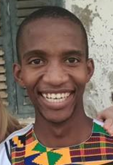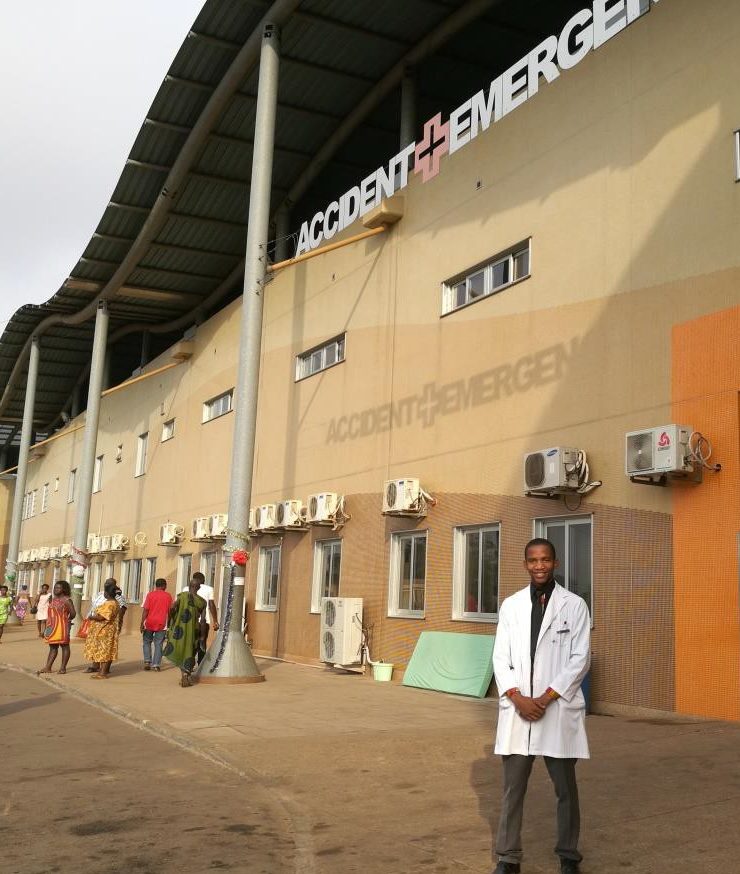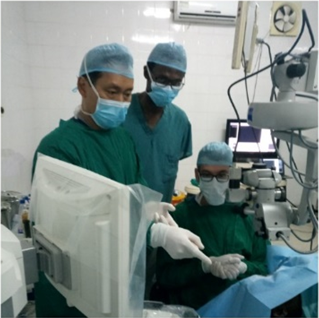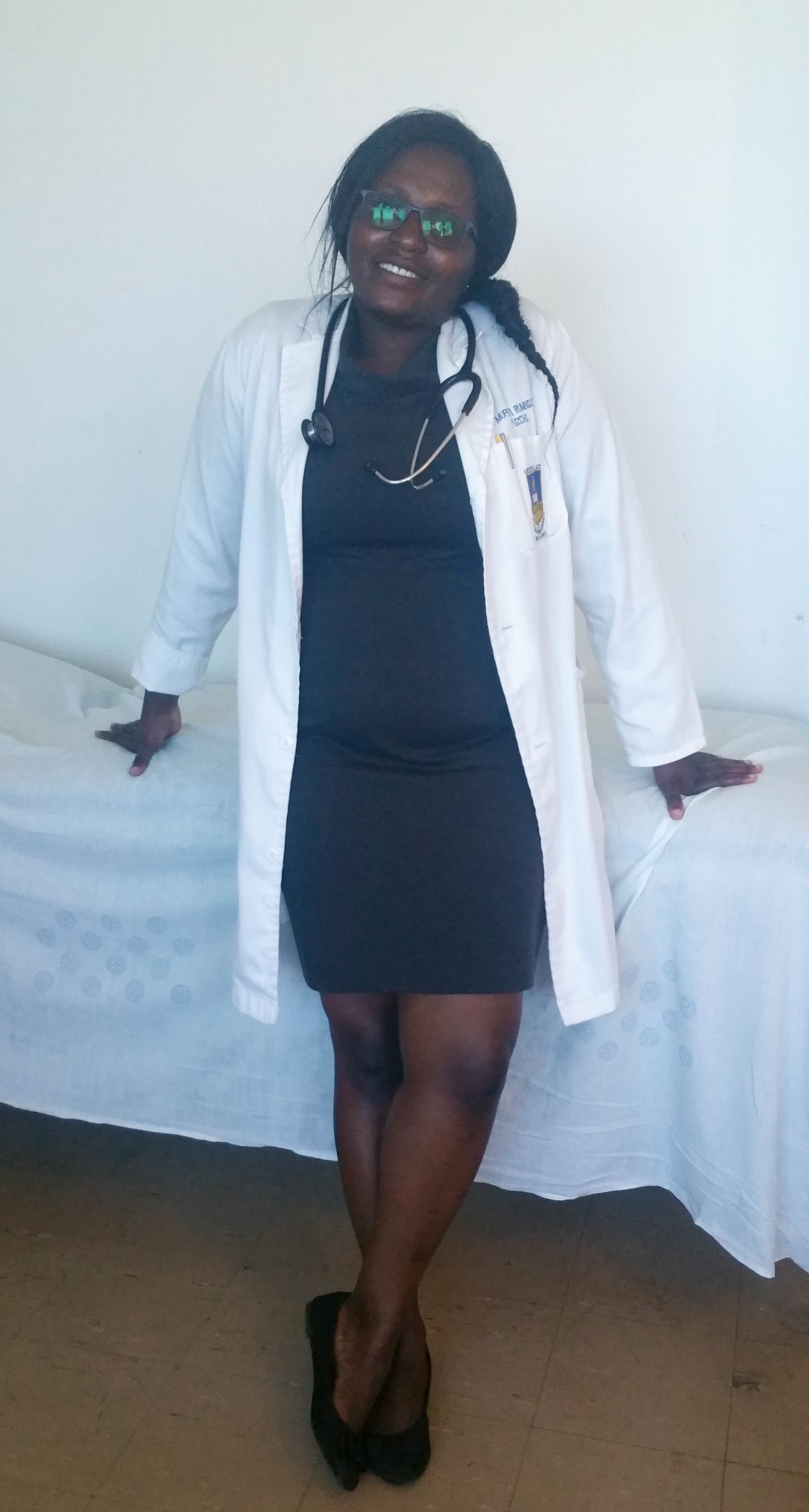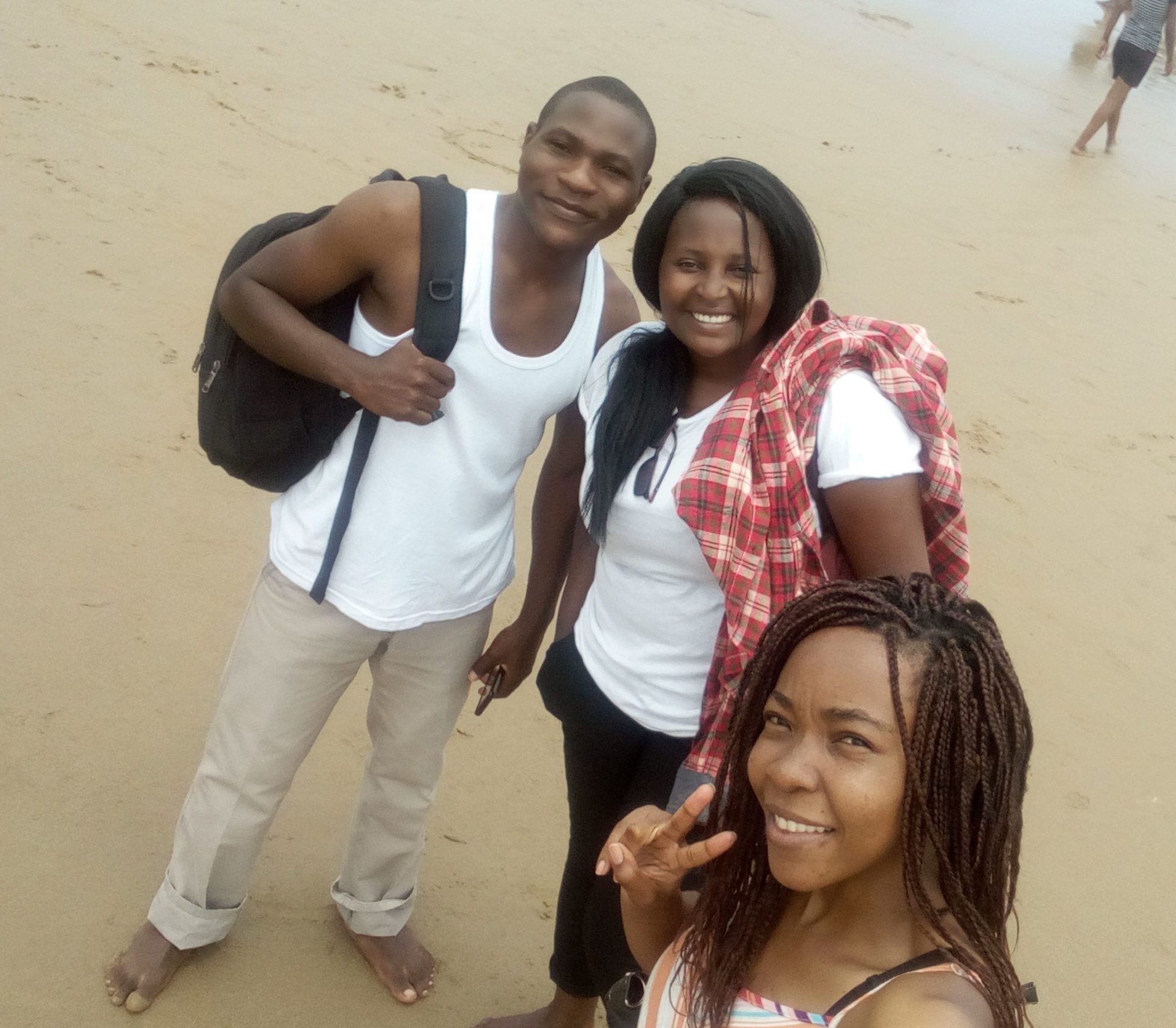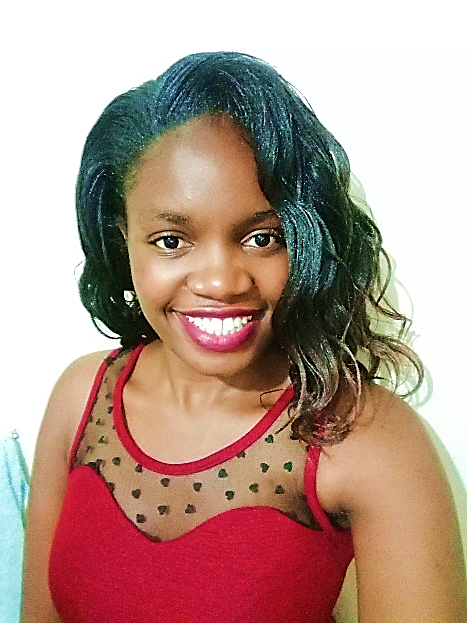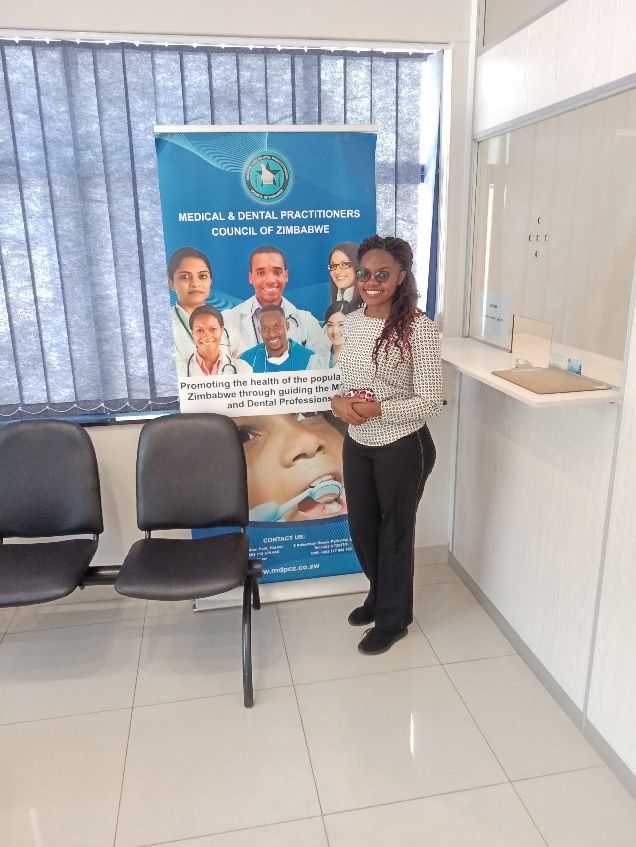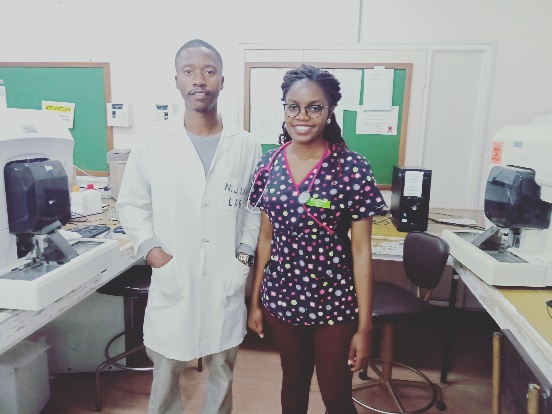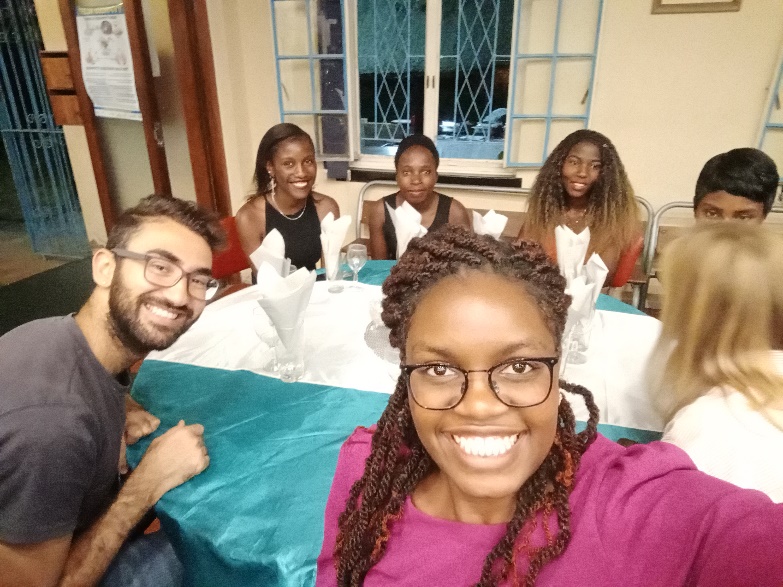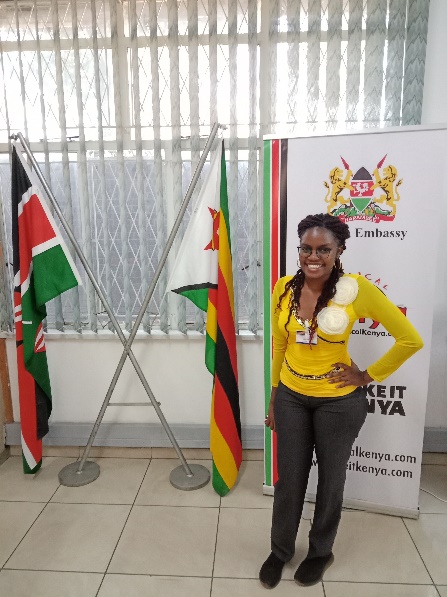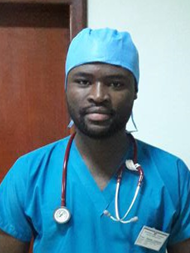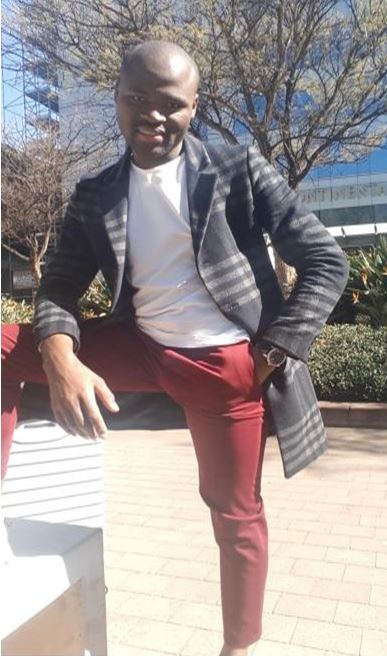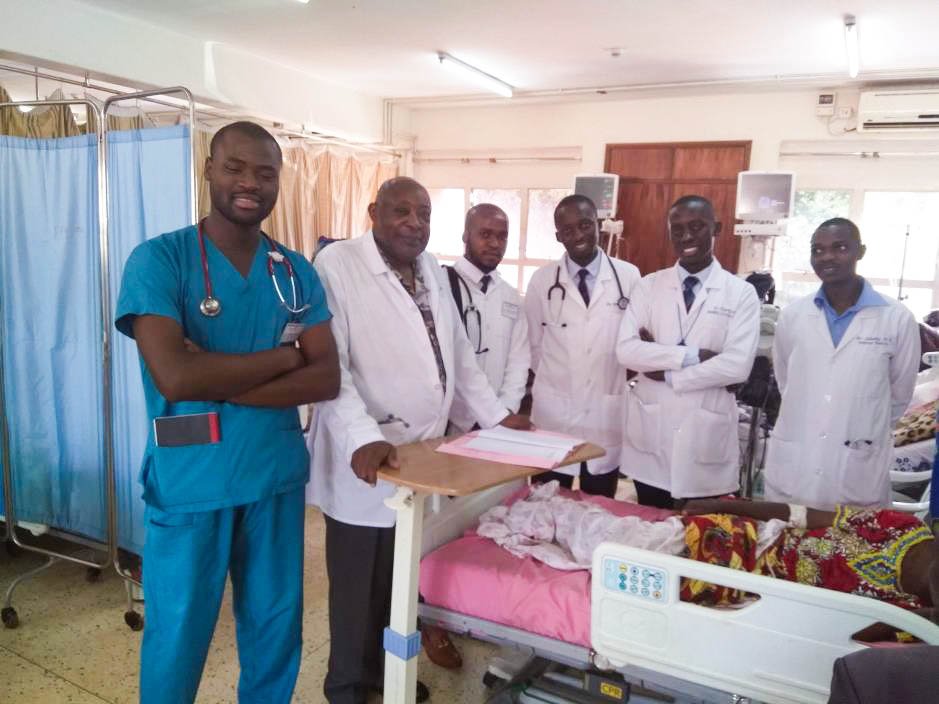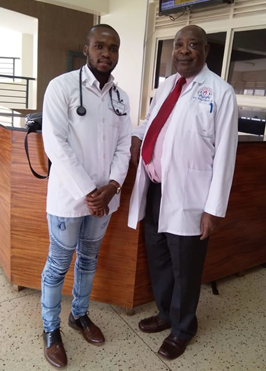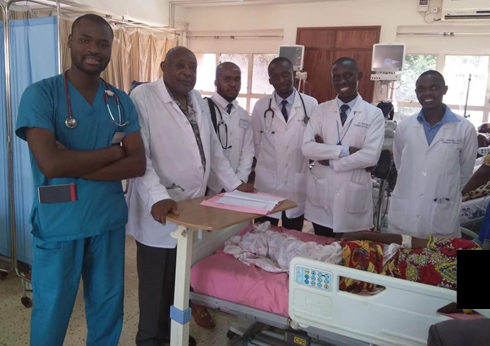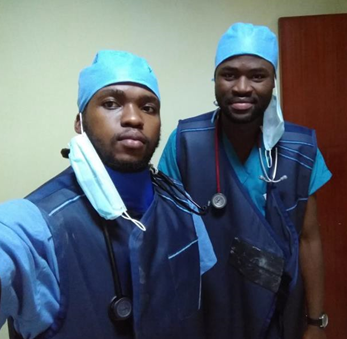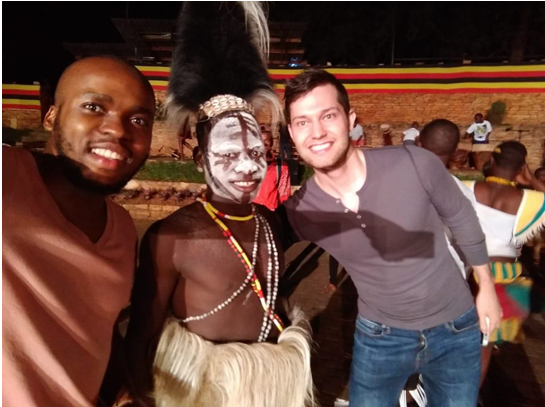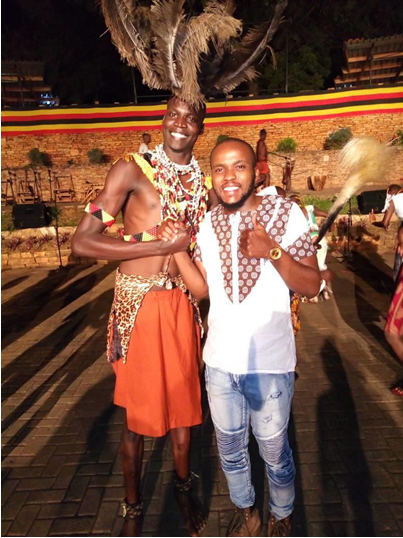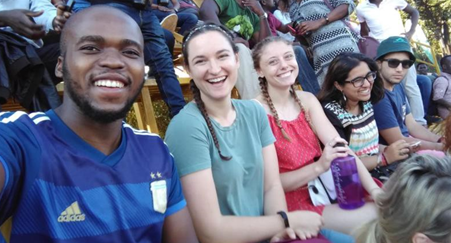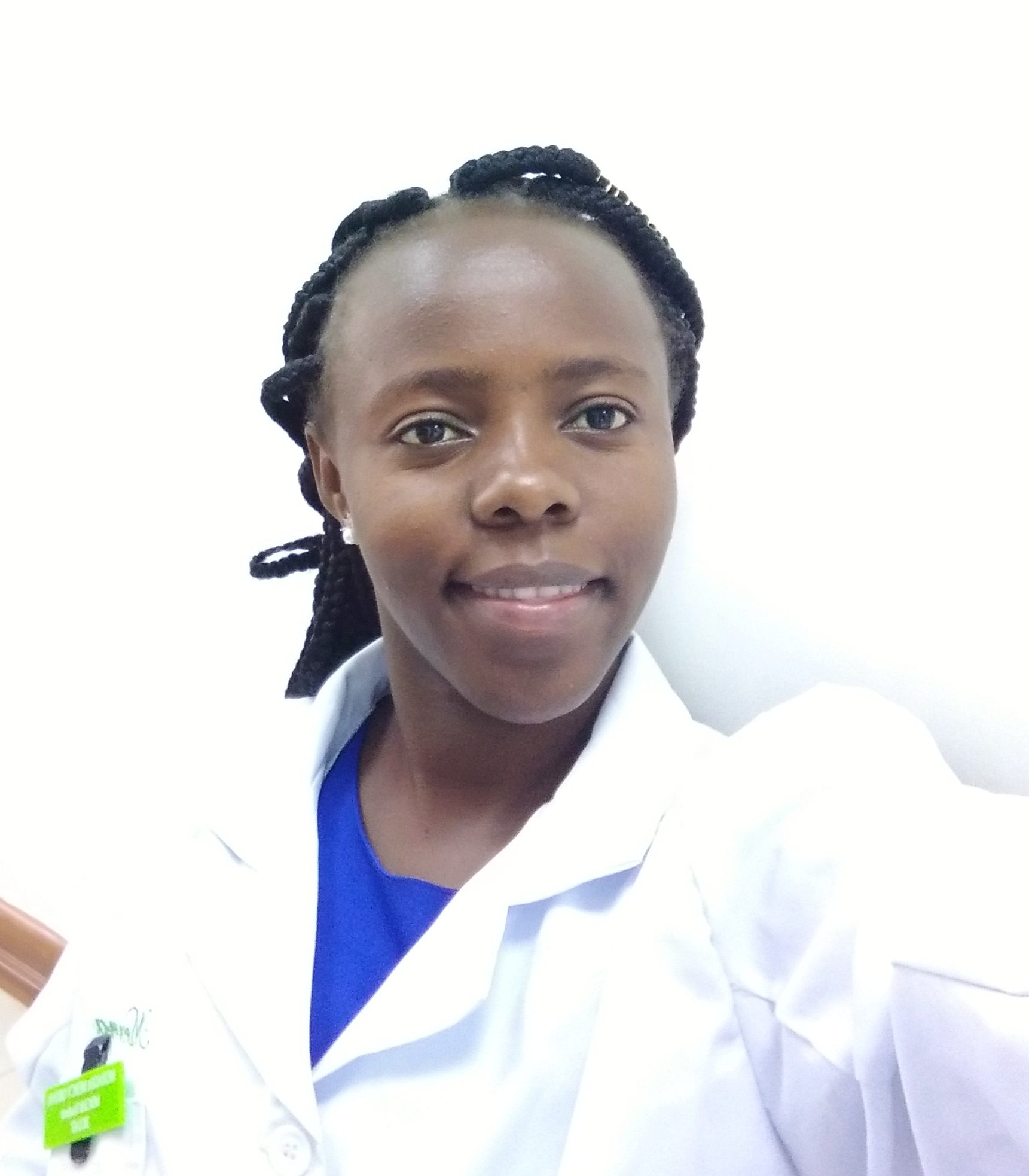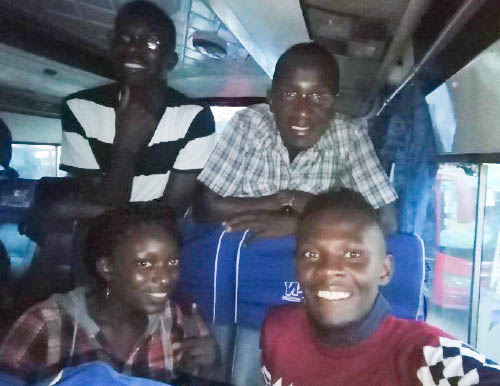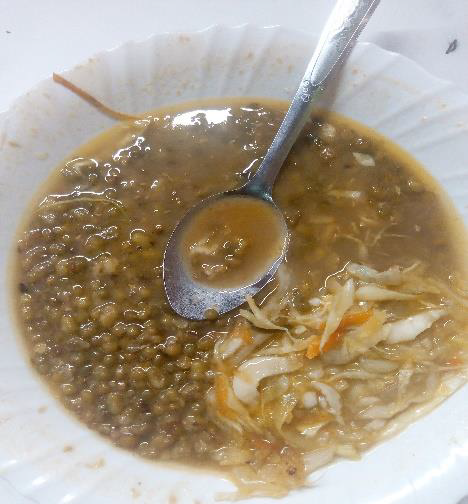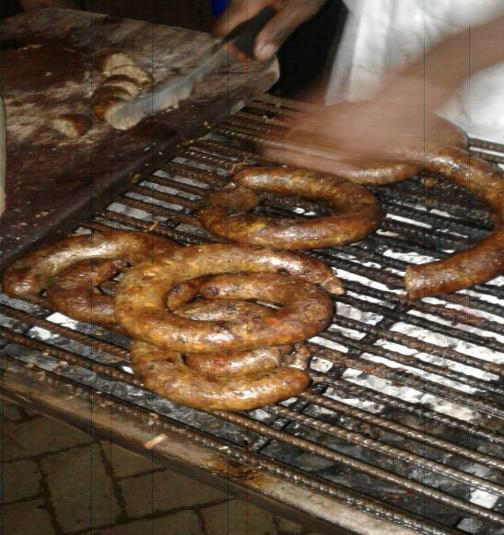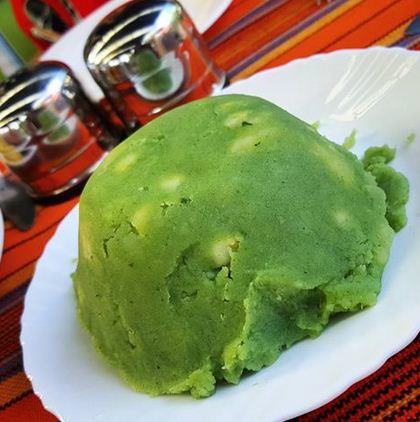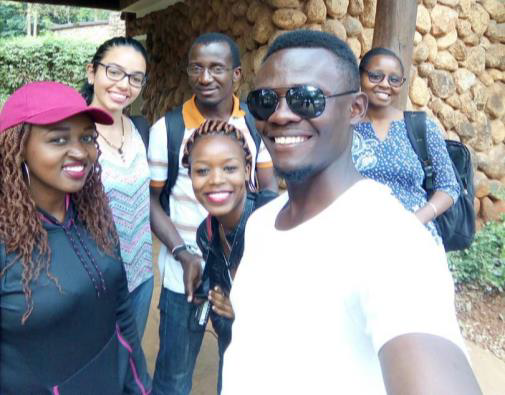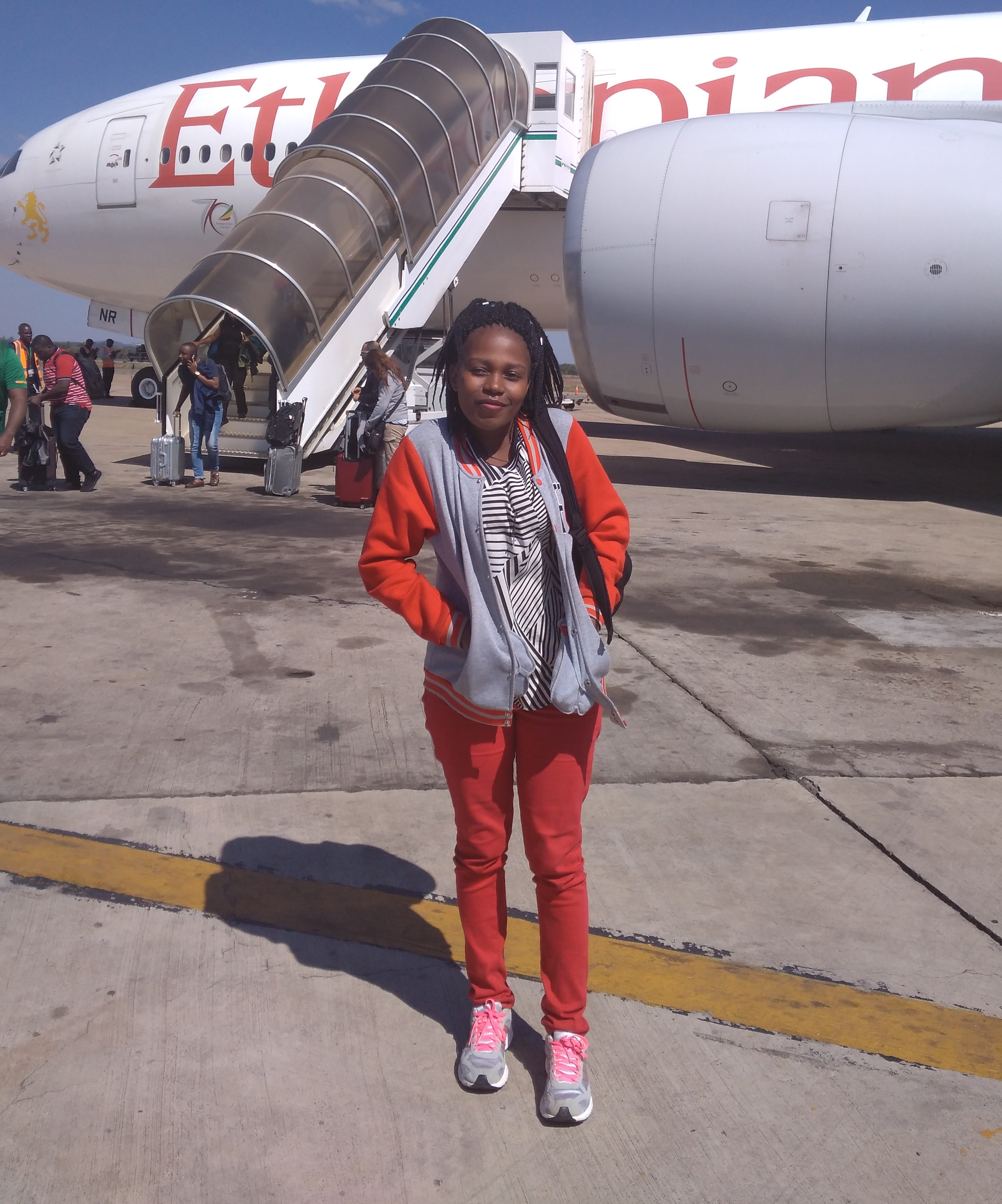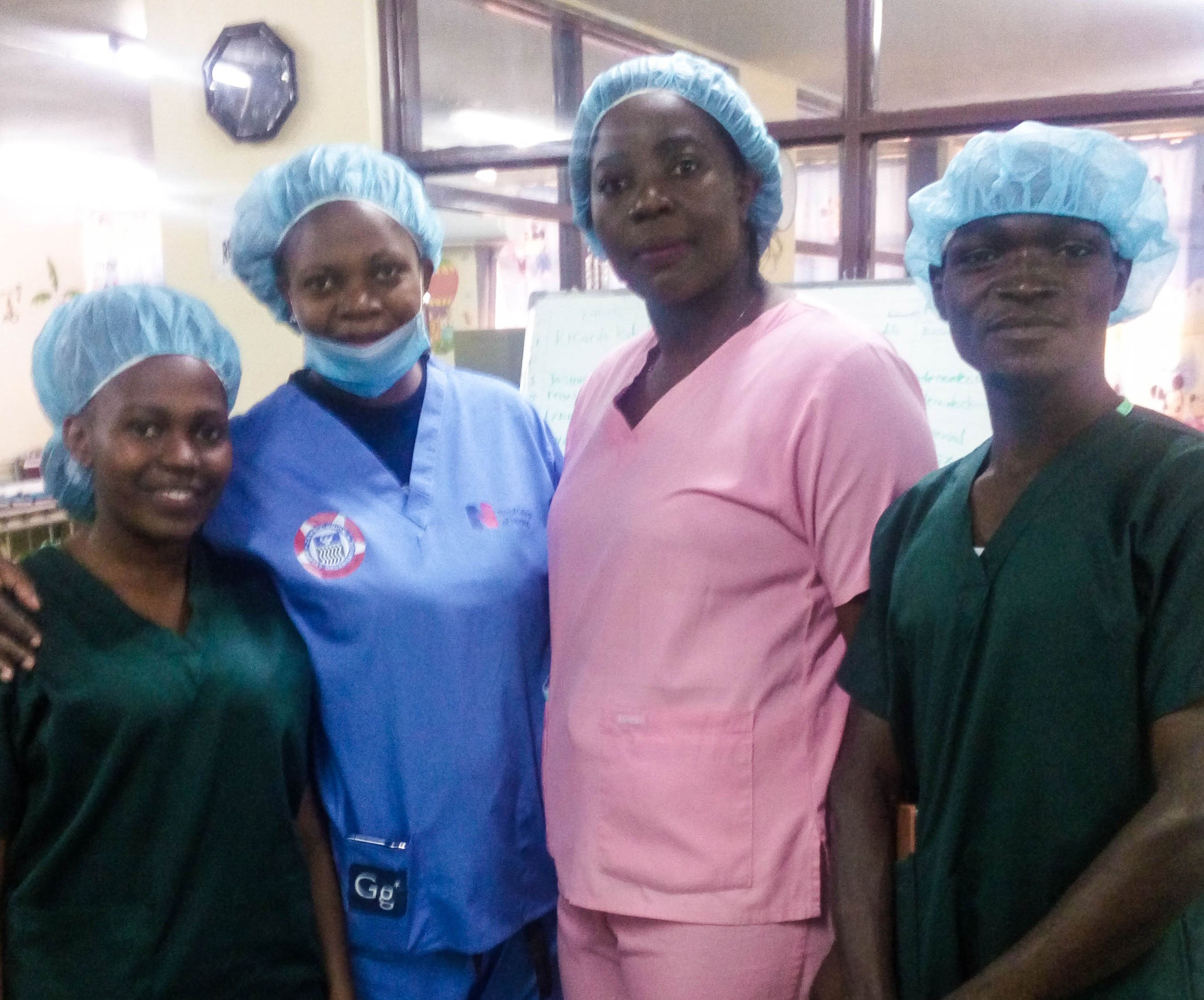Post by Nyasha Ronald Herbert Dzinotyiwei, a student from University of Zimbabwe College of Health Sciences [MEPI] who recently completed an elective exchange at Kwame Nkrumah University of Science & Technology
Acknowledgments
I would like to thank the Global Educational Exchange in Medicine (GEMx) for providing opportunities for medical students all over the world to go on exchange programmes. I would also like to thank my school, University of Zimbabwe College of Health Sciences, for selecting me to take part in the programme. I would also like to thank the Kwame Nkrumah University of Science & Technology (KNUST) for accepting my application, as well as Ms. Charlotte Osei Boateng, Bismark Addu-Appiah (the Exchange Officer) for assisting me in settling in. I would also like to thank the medical students at KNUST for welcoming me and making me feel at home. Medase pa!
Experience in Ghana
My experience in Ghana has been awesome. For sure I had never imagined that I was going to experience what I had experienced. I love so many things about Ghana – the rich heritage, the different languages, the traditional dress (called Kente), the food, and the people. More importantly, I also noted the many similarities between Ghana and Zimbabwe. Moving forward, I can use the different things I learned to make suggestions and improvements in my home country.
Elective Placement
I took up an elective placement in internal medicine that lasted 4 weeks. I was based at Komfo Anokye Teaching Hospital (KATH), which is the hospital affiliated with the KNUST (Kwame Nkrumah University of Science and Technology). I was placed in 4 different departments: Cardiology, Respiratory Medicine, Nephrology, and Neurology. Each placement in the respective subspecialties lasted 1 week. I had difficulties communicating with patients, as some of them were not comfortable speaking in English.
Nonetheless, I managed to communicate with them, and I managed to examine patients as well.
Adjusting to the hospital set up was not very difficult for me because the teaching styles employed at the hospital were identical to those I was accustomed to back home. One of the major things I learned from my stay in Ghana was the provision of the National Health Insurance Scheme (NHIS), and how it aimed at providing equity in healthcare across economic divides in Ghana. I learned about the strengths & weaknesses of the system and how best the system could be tailored to meet the needs of the population.
The teams I was attached to were the teams that had been on duty at the Accidents & Emergencies section. The system in Ghana differs from that in Zimbabwe. While in Zimbabwe we have firms that have admitting days, in Ghana they have duties in which firms take care of patients in the Accidents & Emergencies Department (Our equivalent of Casualty). Back home, there are about
5 firms which, despite being specialized, admit all patients sent to Internal Medicine. In Ghana, the medicine subspecialties operate independently and therefore cardiology patients only attend to Cardiology patients & consults. It reduces the workload tremendously and I believe it also improves outcomes. I also learned about a triaging system for patients who present to casualty, which divides patients into green, yellow, and red depending on the triaging score, which also estimates the severity of disease/injury.
Food
The most intriguing part of my stay in Ghana was the new food. I had never seen such variety in dishes! Ranging from Jollof rice, fried rice, and Waache to Fufu, Omo Tuo, red red, Banku and Kenkey, I had the opportunity to experience a different array of dishes. The food was awesome, and I loved it.
Other Experiences
I also had the opportunity to meet many other exchange students who were affiliated with KATH as well: many of whom were from Germany, Finland, Austria, and Nigeria. The experience was very nice and I got to make new friends and learn about their health systems. I also got to know how their medical experiences have been and how they differ from ours. I made friends that I hope to keep for the rest of my life.
I also had the opportunity to travel whilst in Ghana. I went to Cape Coast & Elmina, and while there I visited Cape Coast and St. Georges’ Castles. I learned more about the slave trade, and how the castles were used to detain slaves while waiting for slave merchants to arrive and collect them as they began their journey across the Atlantic Ocean. I also visited Kakum forest while there. I also went to Mole National Park, which is northern Ghana. The environment was different from the one I had already adjusted to in Kumasi. I had a nice time with the elephants J and I also visited the Ancient Mosque in Larabanga, which happens to be the oldest mosque in West Africa
Last but not least, I had the opportunity to attend the opening ceremony of the 14th International Federation of Medical Students Associations’ (IFMSA) African Regional Meeting (ARM), which was held for the first time in Ghana and in Kumasi. The 13th edition was held in Zimbabwe, so for me, it was a déjà vu experience. I had the opportunity to meet people from many countries, including my own. The theme for the 14th edition was “Rural and remote healthcare – Increasing quality and accessibility to reach everyone, everywhere”. I was inspired by the address given by the Dean of Public Health, Professor Ellis Owusu-Dabo, whose message was in accordance with WHO recommendations. He highlighted 5 main aspects: providing proper healthcare financing (for which he commended the launching of the national healthcare financing scheme in Ghana); deployment of health personnel to remote hard-to-reach places in countries; availability of essential medicines; compiling health statistics and data (incorporating health informatics), and ensuring quality service delivery
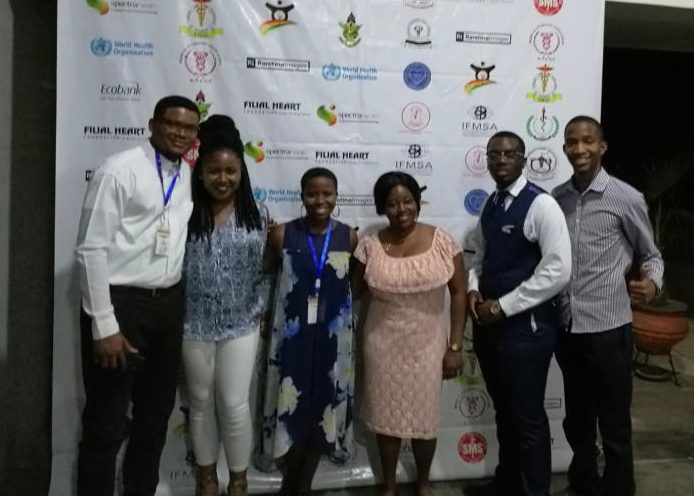
Opening ceremony of the 14th International Federation of Medical Students Associations’ (IFMSA) African Regional Meeting (ARM)

